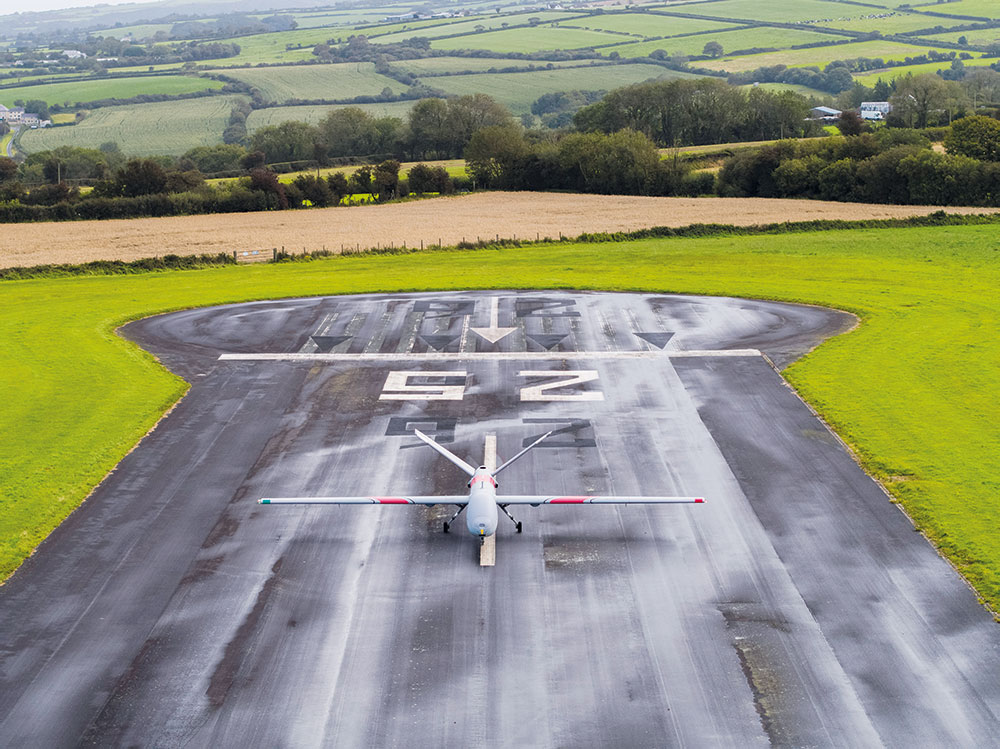Remotely piloted aircraft technology could drive the next generation of search and rescue.
The Maritime and Coastguard Agency is leading work with the Civil Aviation Authority on how remotely piloted aircraft technology can be used in search and rescue.
The MCA began its own evaluation back in May 2018, a joint challenge with the RNLI to the aviation industry, and has since been laying the foundation stones for its future use in potentially saving lives as part of rescue operations. Now more test flights have been carried out during early September using the Elbit Systems Hermes 900 as part of a program of events in West Wales. In partnership, the MCA and Elbit Systems UK are exploring how the use of remotely piloted aircraft could support the work of HM Coastguard.
This is in addition to ongoing evaluations being carried out by Bristow Helicopters in North Wales evaluating a remotely piloted aircraft in simulated and real-time search and rescue operations.
Although the Hermes 900 is not currently being used in live operations in the UK, it will be flying in the colours of HM Coastguard and the assessment will further add to the ongoing work around using future technology in its work.
As well as search and rescue and safety overwatch, the remotely piloted aircraft could potentially be used for counter pollution work providing vital live video and still photographs of ongoing incidents.
Transport Secretary, Grant Shapps, explained: “Drones have the potential to help us in so many aspects of our lives. From search and rescue missions, to delivering critical medicines to places like the Isle of Wight, we are exploring how this new technology could revolutionise our emergency responses.”

















